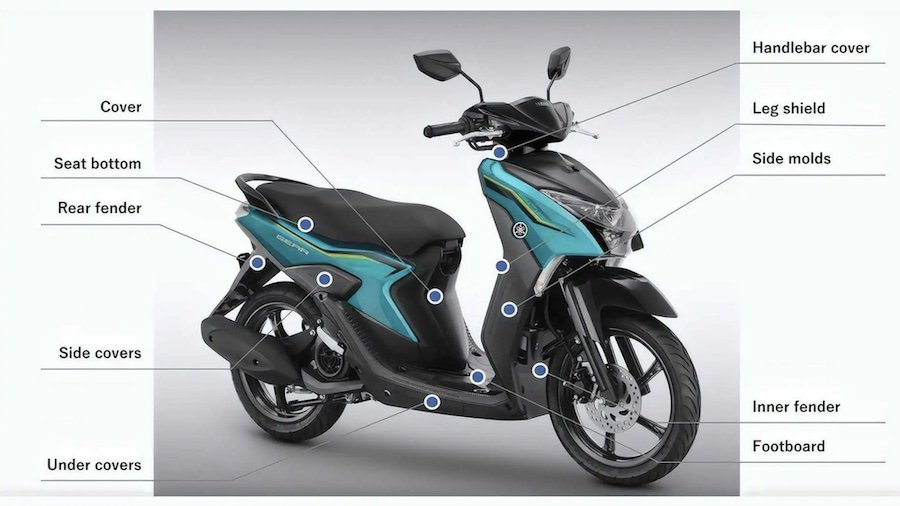Yamaha To Use Recycled Plastics In Some Bike Models Starting In 2023

In March 2023, Yamaha announced to the world that as part of its efforts toward carbon neutrality, it would begin utilizing green aluminum in the production of its motorcycles. The term ‘green aluminum,’ Yamaha says, refers to “aluminum that is refined using renewable energy sources to emit less carbon dioxide in its manufacture.”
That’s one step toward its carbon neutrality goals, but it’s not Yamaha’s only step. On April 11, 2023, Team Blue followed up its green aluminum announcement with the introduction of a new eco-friendly material to the moto production process: recycled polypropylene. It’s something that Yamaha has been working on for a long time, and it’s now confident that the product and process it’s developed is of sufficiently high quality to work well on several 2023 commuter bike models for Association of Southeast Asian Nations (ASEAN) countries.
In fact, Yamaha says, its current processes for development of recycled polypropylene offer higher levels of strength, quality, and even aesthetic appeal than ever before. Resin-based materials are often used to form bodywork on various motorcycles, and Yamaha estimates that polypropylene is used for about half of those parts—which is certainly a significant amount, especially as you start to think about the large numbers of commuter bikes sold by the company each year.
Just how is Yamaha’s recycled polypropylene produced? According to the company, it’s “made only from pre-consumer materials with a traceable manufacturing history and no risk of containing environmentally hazardous substances, such as purging compounds and scraps generated in the production process of petrochemical and molding manufacturers.” (It sounds a bit like composting vegetable scraps, except with plastic scraps generated in manufacturing instead.)
The current plan is to utilize this recycled polypropylene material in 2023 model year commuter models for Southeast Asia to start. From there, Yamaha plans to both increase the ratio of recycled polypropylene used in its bikes going forward, as well as bring the new material to additional product categories further down the line. All this is in service of achieving Yamaha’s stated carbon neutrality goals, which include achieving total carbon neutrality throughout its supply chains by 2050.
Related News
